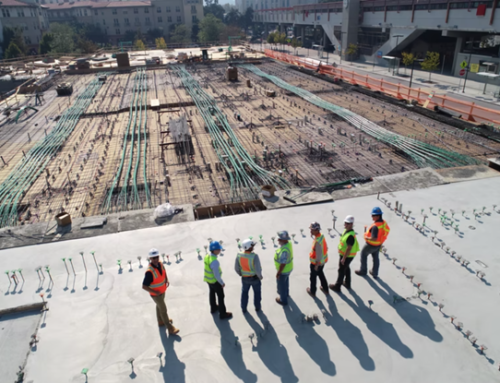The last two years have illustrated that external and internal stressors in the construction industry are nothing new. Quarantines severely limited production capacity because many workers in the trades had to be on-site to perform their job duties. Long-term absences affected supply and demand, slowing down construction.
Now that most firms have reopened, construction companies face burgeoning schedules to meet construction demands, but they often can’t find the workforce to meet their project deadlines. As a result, project managers are moving specialized crews quickly from site to site in an effort to keep up with each phase of construction.
The downside, however, lies in the grim reality that staffing shortages make bidding on large construction projects a risky business. Construction firms are trying to prevent their current workforce from experiencing burnout while looking for new workers to remain productive.
Stress in the construction industry causes burnout
More than half of post-pandemic workers report experiencing some degree of burnout. They tried filling in the gaps left by coworkers leaving their jobs in record numbers, and now these overworked employees – especially women and younger employees — feel the strain.
In response, companies have offered vacation time, but the pressure to remain connected negates the benefits of time away.
Instead, construction firms could consider offering:
- 4-day work weeks. Employees favor working four ten-hour shifts that leave them with three-day weekends.
- Increased flexible scheduling. The post-pandemic workforce seeks the ability to coordinate the demands of their professional and personal schedules.
- Improved company culture. Workers seek employment with construction firms that recognize talent and value employee contributions.
These first steps are just the beginning in alleviating the evitable burnout. Expanding the workforce is the other solution to burnout.
Revitalizing construction industry staffing
Many construction firms experiencing stressful staffing situations have already altered their hiring expectations. These companies are more amenable to hiring workers with less experience or fewer qualifications and training them for their new roles.
They are also formulating ways to attract the next generation of construction workers. More workers are needed to meet construction demands, but firms must also consider the impact of a retiring Baby Boomer workforce. One of the ways to establish a workforce pipeline is to partner with career and technical schools and the government to ramp up – and pay for – job training.
Firms can overcome the staffing shortages causing stress in the construction industry by working with recruiters who can tap into the talent needed.
About Raymond Search Group
At Raymond Search Group, we understand the complexities of hiring elite talent within the architecture, engineering, construction and real estate sectors.
We utilize a consultative approach to understand our partners’ business goals, and we’re dedicated to helping our clients build first-class, long-term teams while eliminating the hassles and extended hiring times associated with executive recruiting. We’re equally committed to helping skilled candidates advance their careers and forge lasting relationships.
If you’re ready to optimize your recruiting strategy, connect with Raymond Search Group today.








Leave A Comment